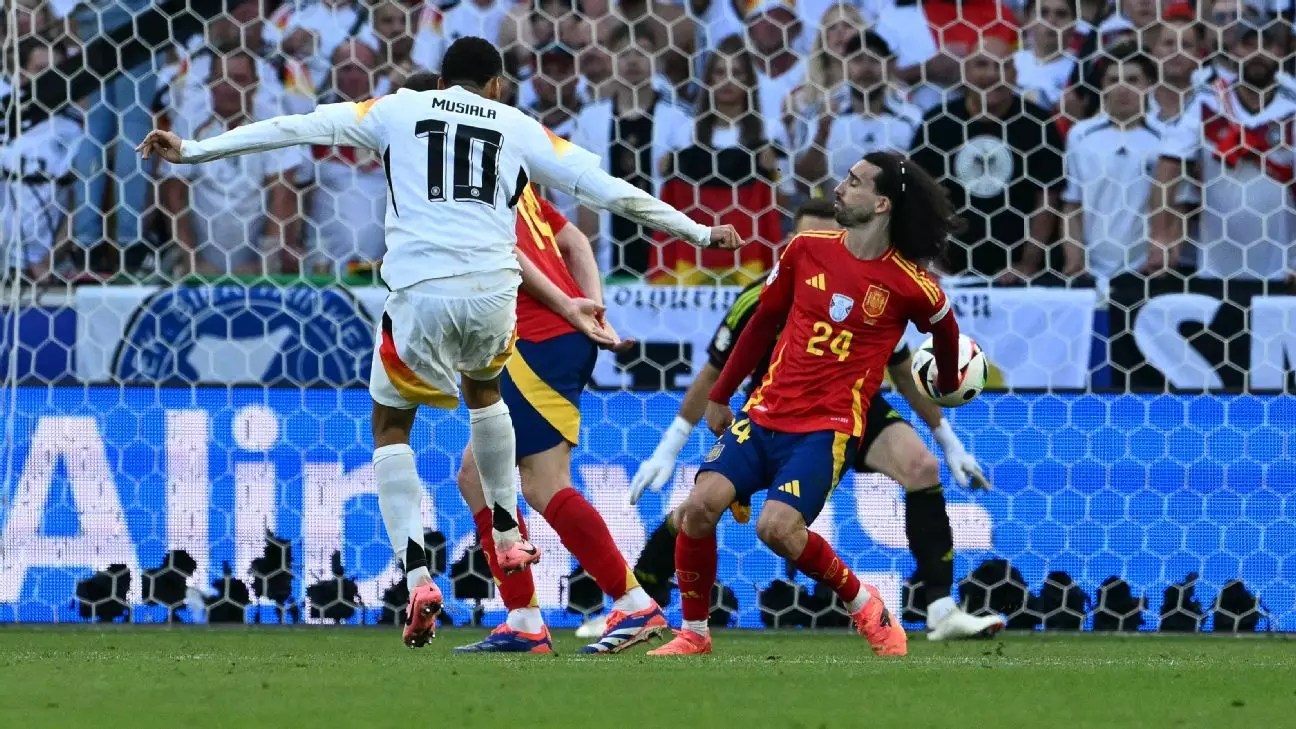The recent report released by UEFA’s Referees’ Committee regarding the Euro 2024 quarterfinals has sparked a wave of discussions and debates among fans, players, and analysts alike. The document highlighted a crucial moment in Germany’s match against Spain, specifically focusing on a controversial non-call for handball. This oversight occurred during a pivotal moment in the match, when Jamal Musiala’s shot struck Marc Cucurella’s arm while the game was tied at 1-1. The lack of a penalty award has raised serious questions about the consistency and application of handball rules in high-stakes matches.
In significant competitions like Euro 2024, the implementation of Video Assistant Referee (VAR) is supposed to enhance the accuracy of officiating. However, in this instance, VAR failed to overturn the original decision made by referee Anthony Taylor, which many viewed as contentious. The protocol of relying on VAR for decisive moments is aimed at eliminating human error, yet the outcome of this specific play left Germany’s players bewildered and frustrated. Not only did the decision affect the psychology of the teams on the field, but it also had substantial implications for the tournament’s outcome, showcasing a critical moment where VAR did not fulfill its intended purpose.
Spain ultimately won the match with a late goal by Mikel Merino, consequently advancing in the tournament and later claiming the championship. This incident has reignited discussions about the parameters of handball judgments. Under the current interpretation rules, a defender’s arm in a natural position does not warrant a penalty. Yet, UEFA’s report inferred that the incident warranted a different evaluation, indicating a disparity between the expectations of the officiating teams and the letter of the law as enforced during the match. Such inconsistencies not only frustrate players and coaches but can also alter the fate of national teams in crucial fixtures.
Roberto Rosetti, UEFA’s chief refereeing officer, had provided prior guidance on handling goal-scoring situations, asserting that arms positioned close to the body should not generally be considered handball. Nevertheless, this particular case challenges that narrative, revealing the potential pitfalls of subjective judgment in refereeing. As UEFA moves forward, it is essential that they refine their guidelines to offer unequivocal clarity to referees, players, and viewers alike. The objective interpretation of referee decisions is paramount in maintaining the integrity of football competitions and ensuring fairness.
The controversy surrounding this handball situation sheds light on the necessity for continuous reassessment of rules and their applications within football. The discontent expressed by Germany’s players serves as a reminder that outdated interpretations can lead to significant ramifications within tournaments. As UEFA prepares for future events, the lessons learned from Euro 2024 should advocate for enhanced education and clearer guidelines for referees and officials, fostering a more uniform application of the laws of the game. In football, as in all sports, clarity and fairness must prevail to ensure that the essence of competition is preserved.


Leave a Reply